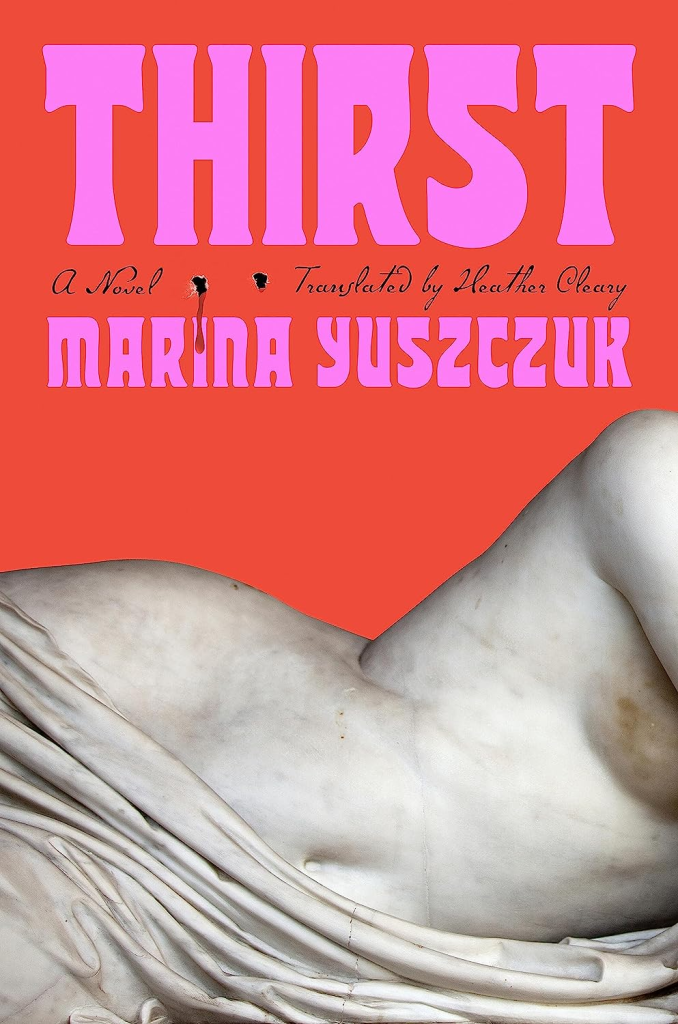
Buy it here:
Synopsis:
Across two different time periods, two women confront fear, loneliness, mortality, and a haunting yearning that will not let them rest. A breakout, genre-blurring novel from one of the most exciting new voices of Latin America’s feminist Gothic.
It is the twilight of Europe’s bloody bacchanals, of murder and feasting without end. In the nineteenth century, a vampire arrives from Europe to the coast of Buenos Aires and, for the second time in her life, watches as villages transform into a cosmopolitan city, one that will soon be ravaged by yellow fever. She must adapt, intermingle with humans, and be discreet.
In present-day Buenos Aires, a woman finds herself at an impasse as she grapples with her mother’s terminal illness and her own relationship with motherhood. When she first encounters the vampire in a cemetery, something ignites within the two women—and they cross a threshold from which there’s no turning back.
With echoes of Mary Shelley’s Frankenstein and written in the vein of feminist Gothic writers like Shirley Jackson, Daphne du Maurier, and Carmen Maria Machado, Thirst plays with the boundaries of genre while exploring the limits of female agency, the consuming power of desire, and the fragile vitality of even the most immortal of creatures.
Review:
Thirst by Marina Yuszczuk is a Latin American vampire novel split into two parts. The first part is set in the 1800s and starts with a female vampire escaping her hunters in Europe by hiding on a ship. The ship lands in Buenos Aires, and she makes a good life for herself. The second part is modern day, where a woman is given a key to a crypt by her dying mother and meets the vampire. Both sections are good, but the first section is brutal, fast paced, and engaging. The second part is more about mortality, loneliness and longing, and the agony of watching the slow process of a mother dying. (It is never stated but the deterioration of her mother makes is feel like she has Amyotrophic Lateral Sclerosis (ALS), a neurodegenerative disease where the patient slowly loses function of both skeletal and smooth muscles, until the respiratory muscles finally fail). Both parts are good, but so different, with different tones and feelings.
The writing is sharp and beautiful. This is no doubt a novel from an Argentinian writer. The style of most Latin American writers are long paragraphs that tell the story more than show the story. There might be a year or ten years on one page, everything summarized. This is also why many Latin American novels are fairly short. The style of these novels means that you have to be a very good writer, someone who does not spare a single word, and you have to find a good translator. This translation by Heather Cleary is very readable and engaging. Yuszczuk’s talent is writing a story that is compelling in a style that should not work as well as it does.
When I was reading the first part of the book, I realized that I do not really read many vampire novels. I do not find them to be top of my list of horror subjects. I do have a list of top five vampire books and movies, but I do not consider myself an expert in the subgenre. I do know that I always have this feeling that vampires should be sexy, that biting someone on the neck is the way that they feed but also foreplay toward something more sensual. Many vampire stories that I have read hint at this or ignore it completely, but this sensuality is front and center in Thirst. The vampire story is a subgenre that has been written so many times that there are not many new things that can be done with this story, but Thirst does utilize the parts of the vampire mythos that really makes the story entertaining.
I received this as an ARC from Netgalley in exchange for an honest review.
